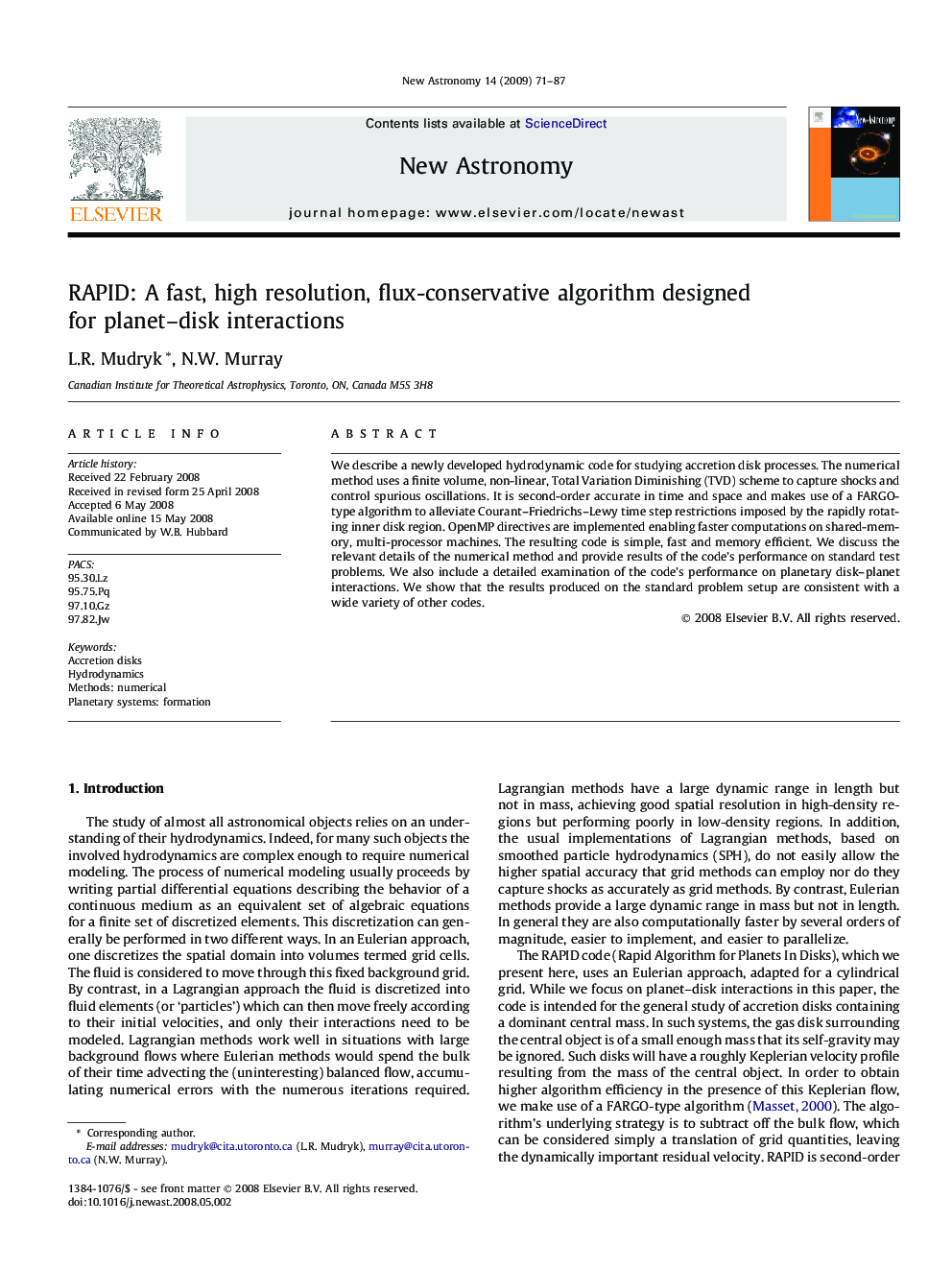| Article ID | Journal | Published Year | Pages | File Type |
|---|---|---|---|---|
| 1779232 | New Astronomy | 2009 | 17 Pages |
Abstract
We describe a newly developed hydrodynamic code for studying accretion disk processes. The numerical method uses a finite volume, non-linear, Total Variation Diminishing (TVD) scheme to capture shocks and control spurious oscillations. It is second-order accurate in time and space and makes use of a FARGO-type algorithm to alleviate Courant-Friedrichs-Lewy time step restrictions imposed by the rapidly rotating inner disk region. OpenMP directives are implemented enabling faster computations on shared-memory, multi-processor machines. The resulting code is simple, fast and memory efficient. We discuss the relevant details of the numerical method and provide results of the code's performance on standard test problems. We also include a detailed examination of the code's performance on planetary disk-planet interactions. We show that the results produced on the standard problem setup are consistent with a wide variety of other codes.
Keywords
Related Topics
Physical Sciences and Engineering
Physics and Astronomy
Astronomy and Astrophysics
Authors
L.R. Mudryk, N.W. Murray,
